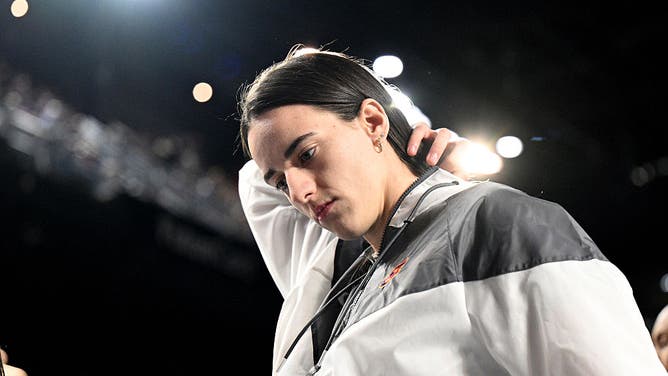Caitlin Clark Drama Emblematic of Broader Fear to Discuss Race Honestly in America | Bobby Burack
The most frequently asked question I've received over the past two weeks is about the conversation surrounding WNBA star Caitlin Clark. People questioned why we cover her so often, why the interest is so high, and why some WNBA player is now a topic on cable news.
The answer, put simply, is that the story is bigger than the WNBA, basketball, and sports. What's happening to Caitlin Clark is emblematic of how we discuss and treat racism in America.
Clark is a generational talent whose stardom is transcendent. According to recent estimates, she could raise the value of the WNBA by more than $1 billion. She is also a straight white woman in a league in which black and LGBTQ culture are at the core of the ethos.
Unlike other straight white women in the league, Clark did not initially speak the code or atone for her whiteness. She wanted to, to use a popular phrase, stick to sports.
Players and commentators resent her for that. They've tried to cope with her stardom by dismissing it as a product of systemic racism or great white hope-ism.
The WNBA community has fallen for the same Marxian concept behind Black Lives Matter and the pro-Palestine movement. These groups are believers in the idea that success is the result of exploitation.
In the case of the WNBA, the likes of Angel Reese, DiJonai Carrington, Monica McNutt, and Chiney Ogwumike view Clark's popularity as a rejection of black women. In fact, ESPN columnist David Dennis Jr., in a now-deleted tweet, accused Caitlin Clark fans of rooting for her as a means to root against black women.
It's all such a lie.
However, believers in this dark, destructive theory have successfully hijacked the conversation. According to the narrative, the black women are just trying to play basketball, but Clark's racist fans won't let them. In reality, the way the black players have treated Clark has undermined the game on the court.

Caitlin Clark of the Indiana Fever. (Photo by Greg Fiume/Getty Images)
Like most conversations about race in America, the narrative often overpowers reality. Most people would rather self-censor than risk someone labeling them a "racist" or a "sellout" for pointing out the obvious.
Take the past two weeks, for example.
The WNBA launched another investigation into alleged racism toward Angel Reese, who portrays herself as Clark's chief rival. Once again, the league found nothing. Angel Smollett struck again.
Add that to the growing list of race hoaxes in the world of sports.
Meanwhile, there are actual examples of racism in the WNBA. Days after Reese appeared to lie to reporters about the alleged racist chants, she shared a TikTok video mocking Clark as a little "white girl afraid to catch the fade" with a photo of Reese trying to fight her.
Last Thursday, Brittney Griner appeared to utter "Trash, fucking white girl" from the bench of a game against the Fever.
OutKick has asked the WNBA for comment on both incidents. Crickets.
The WNBA community has made clear: baseless allegations of racism toward black players will be treated with the utmost sensitivity, while actual racism against Caitlin Clark will be ignored completely.
Consider that after enduring a full season of racially charged harassment, Clark was the one who issued a faux acknowledgment of her white privilege after the season (twice).
In her mind, it was easier to apologize to the bullies than to stand up for herself. Surely, other white people in America can relate.
In a normally functioning society, there wouldn't be such contention and debate around the topic. The treatment of Caitlin Clark is wrong. The racial double standards are glaring. No honest person could dispute that.
Yet here we are. Somehow, the racists have crafted a narrative in which they are the victims.
But we shouldn't be surprised. The conversations about BLM, DEI, and CRT are no different. In each case, a loud, vicious minority successfully browbeat the rest of society into submission and silence.
As a society, we cannot continue to function like that. We cannot let the truth subside in the face of fear.
So, can we finally have an honest talk about race? If so, some obvious statements should be made.
Caitlin Clark's fans are not racist. The people angered at the success of a white woman are the racists. Clark doesn't have white privilege. If she did, she wouldn't have to keep apologizing for her skin color. More people hate Clark because of her skin color than love her for it.
None of that should be so hard to say, yet so few people are willing to say it.
The discussion around Caitlin Clark underscores how we are a nation still too afraid to discuss race honestly. And that has to change.
This is bigger than basketball.